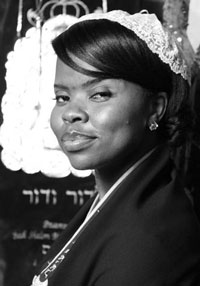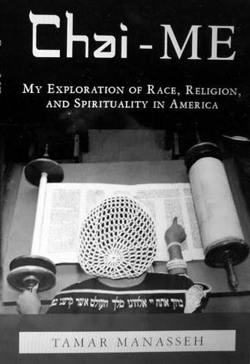FCNNEWSSOURCE

Some in the Black community said she could not be Jewish because she was Black. Some in the White Jewish community said she could not be Jewish because she was Black. Tamar Manasseh’s new book responds to both communities as well as her critics. Her book also gives a voice to those who have experienced similar battles within religious communities while embarking on their own spiritual journey. She sat down with The Final Call to share some of her thoughts.
The Final Call Newspaper (FCN): What are your reasons for writing this book?
Tamar Manasseh (TM): My reason for writing this book was to give voice not to just me and my family but to all Black Jews who are made to feel like an oddity or a misfit, in both the Black and Jewish communities. However, in the process of writing this book I found that my voice and the voice of other Black Jews are echoed by so many other Jews, many of whom are not Black but often find themselves on the outside of mainstream Judaism just as Black Jews do.
(FCN): What do you hope to accomplish–what do you hope readers come away with after reading it?
(TM): I hope that this book will start some dialogue that in the beginning may be a bit awkward and uncomfortable but eventually become very meaningful and productive. I hope this book causes people to pause and do some personal reflection.
(FCN): You discuss the racism from within the Jewish community that you experienced as well as the unusual treatment by Black people once they discover you are Jewish. Are you looking for solutions to these issues?

(TM): The solutions for the issues of racism and intolerance reside within each of us. All that I can pray for is that each of us can find it in our hearts to make a conscious effort in committing ourselves, mind, body, and spirit to help and be a part of the solution.
(FCN): So is it a book on racial dynamics? Religious tolerance? The importance of diversity? In essence, what does your book represent?
(TM): All of the above. It is a discussion of racial dynamics, religious tolerance and the importance of diversity.
(FCN): What has been the response from those you have met at your book signings and appearances since it was released?
(TM): When I meet people at signings, the first thing they want to know is, how exactly do you pronounce the name of the book? (Laughs) Then I get warm smiles and big hugs and plenty of encouragement.
(FCN): Do you fear retaliation from those discussed in the book such as some of the educators and religious leaders whom you’ve criticized?
(TM): I don’t fear anything from any one man or any men or any human being, period! What I have written has been for the sake of righteousness and nothing else. I don’t have a bulletproof vest or a gun. God protects me.
(FCN): In the book, you allow readers to travel with you on your long personal journey as you accepted your identity and mission. How important was it for you to let readers into your world?
(TM): It was very important for me to let readers into my world because if I did not, one would fail to see the absolute importance and urgency in the issues that I discuss.
(FCN): On a side note, what are the biggest misconceptions people have about you, I mean, when they find out you are Jewish?
(TM): When people find out I am Jewish they can’t believe that I don’t like Gefilte fish, Bagel and Lox. (Laughs!)
(FCN): The trifecta–Black, Jewish and female. Is this a story of empowerment?
(TM): This certainly is a story about empowerment. It is about me taking a pen and writing my own story and not giving anyone license to write it for me.
(FCN): Thank you.
(The book, Chai-ME is available through the author’s personal website www.TamarManasseh.com, where you will also find blog postings, photos and other materials. It can also be purchased through Amazon.com.)












